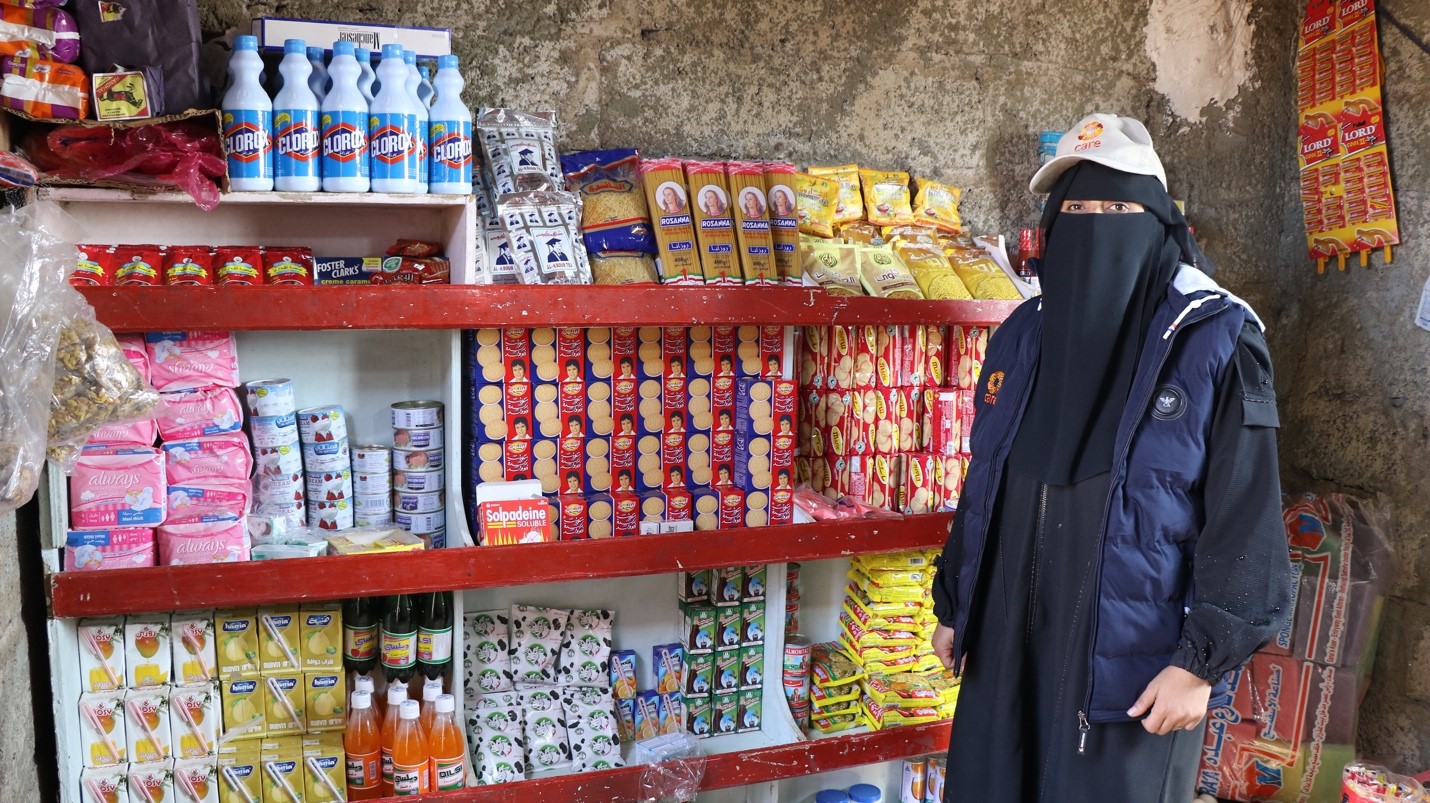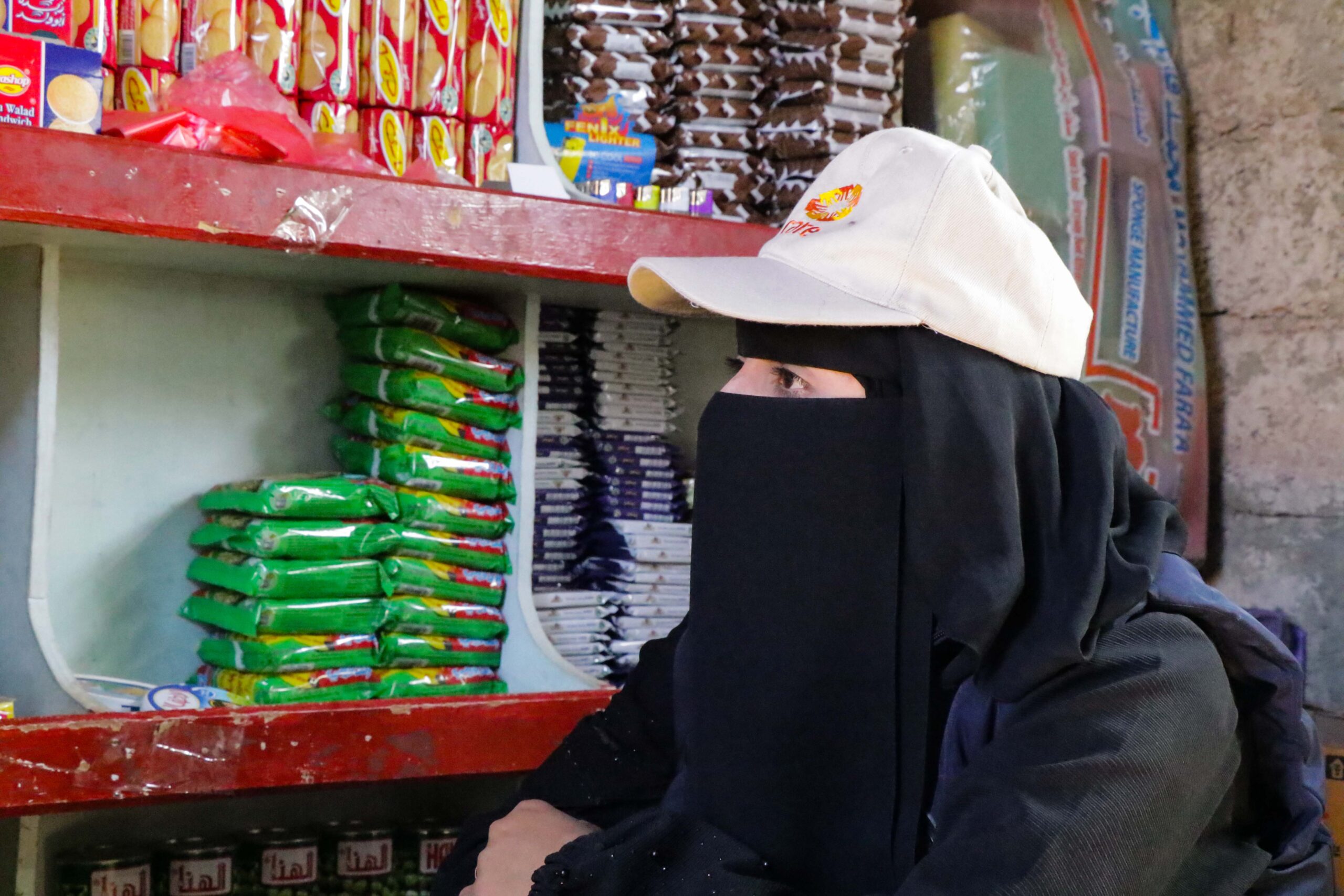Trying to explain his wife’s injuries, Samer’s husband gave the excuse that she had fallen off his motorbike on the way to her parents’ house. Her uncle did not believe him – he took some photos of her swollen face and got a medical report, which he submitted to the police. In the end the husband confessed to his guilt. In court, Samer’s parents filed for divorce, but Samer had to leave her children with their father.
She could not tolerate her 7-year-old son and 5-year-old daughter living so far away from her, so she left behind the divorce case, and went back to her husband. “Going against my family was hard but important for my children’s survival,” says Samer.
The conflict in Yemen added insult to injury, and Samer experienced severe hardship as she lived close to an area targeted by frequent airstrikes. With her whole family she moved to her sister’s house to for protection. “The road to get to my sister’s village was hard,” she says. “There was no transportation so we had to go on foot at a time when there were airstrikes all around.”
In the midst of all these difficulties, Samer heard about CARE. She thought she might perhaps receive a flour bag or cooking oil but it turned out to be much more than that. Samer was referred to CARE as a survivor of gender-based violence to be supported by a project funded by the UN’s Population Fund (UNFPA). She received trainings in life skills, financial skills and village savings and loan associations.
“After these trainings I can speak up, communicate with people and convince my husband of any decision I take,” says Samer. She developed a business plan with the help of the trainer and received a loan to start a small project.
Her idea was to open a grocery shop in her house. She lives far away from the city and there are a lot of houses in her neighbourhood but no services, so a small shop would help people to be able to buy the what they need for daily life without spending money travelling to bigger shops. Some people spend as much as 1000 Yemeni Riyals (YER) travelling to buy yoghurt for 200 YER.
At the beginning, her husband refused to let her open a shop in their home. But she persuaded him that by starting this project she would be able to buy enough food for the family. She recalls the difficult financial times they experienced: “I remember that when I was pregnant and I wanted to eat some grapes, I sold my gold ring.”
Samer is now making a good income from this project. She can buy her own food without borrowing money from others or selling any of her property. “I save money every month, so I will be able to buy a bike for my son, which is his dream.” She aims to provide her children with a proper start in life by feeding them good food and enrolling them in decent schools.



